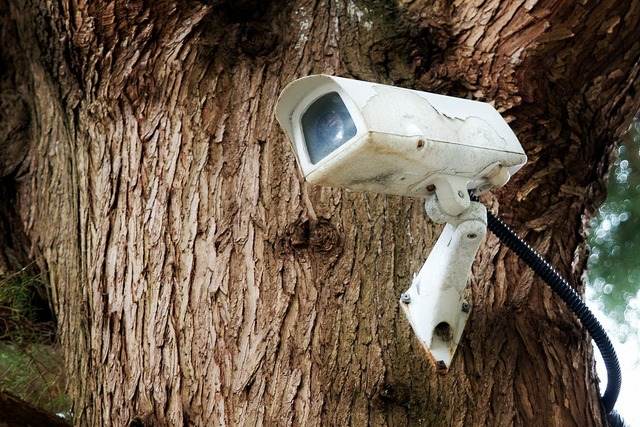
There have been several high-profile cyber attacks on Sony Pictures, online retailers, and even health care providers in recent months. That’s putting pressure on lawmakers in the U.S. to “do something.” Meanwhile, corporations are responding by advocating for “cyber sharing” legislation that would give them broad liability protections for sharing their customers’ data with the U.S. government.
In the wake of these attacks, there are real concerns about protecting users’ privacy. But as security experts have confirmed (PDF), the increased information sharing that’s being proposed will not enhance cyber security. It certainly wouldn’t stop the kind of attacks that spurred Congress to act.
Unfortunately, the U.S. Congress is pushing ahead anyway, introducing a number of proposals that indemnify companies that give private data to the government. Under some of these proposals, the data could be used to investigate any crime — even minor drug offenses. That’s not cyber security; it’s security theater, at best. The end result is cyber surveillance.
Access takes cyber security very seriously — that’s why we operate our 24-hour Digital Security Helpline to help activists around the world use their digital devices safely. We know cyber threats are real and can potentially endanger the lives of users at risk. That’s why we believe in real solutions to protect users, and fight for their rights, and it’s why we’re working with a coalition in the U.S. to demand that the president veto these dangerous bills. Join us at StopCyberSpying.com.
We also believe that digital rights are human rights, and that they require protection from government abuse. Edward Snowden revealed to the world how the “Five Eyes” governments — the U.S., U.K., New Zealand, Australia, and Canada — regularly monitor the communications of hundreds of millions of people around the world. The U.S. has not yet put meaningful checks on this surveillance. Section 215 of the USA PATRIOT Act is one of three major authorities that the U.S. government relied upon to undertake mass surveillance, and it’s still in force. Section 215 is set to expire or “sunset” on June 1, 2015, but unfortunately, legislation has already been introduced to stop that from happening.
The cyber surveillance bills are moving quickly and along an unusual path. Just yesterday, the House of Representatives passed the Protecting Cyber Networks Act (PCNA) with a vote of 307 to 116. Today, the House passed a second bill, the National Cybersecurity Protection Advancement Act (NCPA), which has many of the same problems as the PCNA. These will eventually need to be reconciled along with the Senate’s (third) version. Regardless of the outcome, each of these bills are fundamentally flawed, and we need to take action to stop them.
Surveillance is not just an issue in North America. In France, Parliament is considering a harmful new bill that would enable mass surveillance by intelligence services, including allowing authorities to use International Mobile Subscriber Identity (IMSI) catchers — a tool that “tricks” your mobile device so that you think you’re being connected to a cell phone tower, when in fact your communications are being vacuumed up. The bill was first introduced shortly after the killings at the newspaper Charlie Hebdo in January of this year. At the time, Access argued that the French government should not use the killings as a pretext to pass dangerous new surveillance legislation. Sadly, that’s exactly what is happening. We’ve partnered with the digital freedom organization La Quadrature du Net and a coalition of 18 organizations to help people contact their local representatives in France. You can take action to stop the bill.
Legislators tend to respond swiftly to cyber attacks and terrorism with bold statements and hastily written bills — but as we’ve seen, bad laws can stay on the books for decades. These issues are far too important to rush into law. Cyber security should not be used as an excuse to trample upon our digital rights or expand government surveillance, in the U.S., in Europe, or anywhere else in the world.
photo credit: Alex Lang
